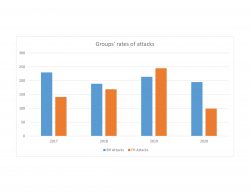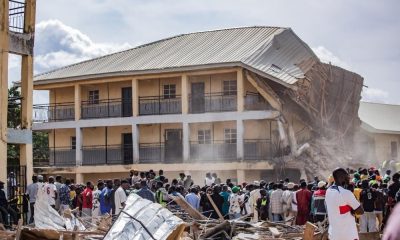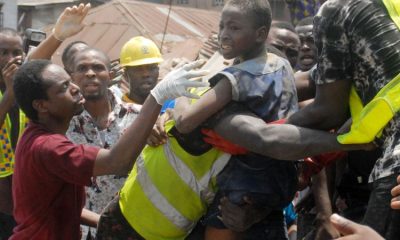Boko Haram and its twin terror group—violent Fulani herders—have kept up the spate of violence in the last three years, and many Nigerians are too shell-shocked to discern which is hotter.
But reports from the Global Terrorism Index, the Nigeria Security Tracker by the US council of Foreign Relations, and a working document based on a Brussels-based researcher’s media content analysis between 2017 and 2020 reveal a fact: Boko Haram tops the table in terms of attack and mortality rates, the former whipsawing from the 2016 figure—which itself was a 12 percent fall from the 4,400 deaths recorded in 2015.
The Fulani herder group, whose top crime is property destruction, has kept increasing its attacks, which got more murderous in 2018—compared to death figures in preceding years, and after. The rate of attac also peaked in 2019. What brought about the outlier provokes curiosity. It’s not unconnected with politics, though.
 Attacks: BH: Blue, Fulani Herders: Red
Attacks: BH: Blue, Fulani Herders: Red
But meantime, the administration of President Muhammadu Buhari who promised to end terrorism has being struggling to make this gain clear to Nigerians. “We have degraded Boko Haram technically,” Information Minister Lai Mohammed keeps harping on that—to no effect.
In no fewer than 828 attacks between 2017 and 2020, Boko Haram killed 3634 civilians, mostly in the northeastern part of Nigeria. The violent Fulani herders killed 2539 people in 654 incidents, mainly in the north central, among the Christian population, and in the southwest, too.
Of the types of violence the Fulani herders are known for, property destruction comes top: 7582 in the period, followed by killing, kidnap (253), which peaked at 137 cases in 2017, and church destruction (24)—all in that order. Rape is the lowest—16 cases in those four years. Most of the crime, especially killing, raping, and kidnapping by Fulani herdsmen abated in 2017 and 2020. Except for destruction that peaked in 2017, hitting 6,500.
Killing (1478) and raping by Fulani herders rose to their highest figures in 2018:1478 and 137 respectively.
 Deaths: (BH: Blue Fulani Herders: Red)
Deaths: (BH: Blue Fulani Herders: Red)
The events of the year leading to the 2019 general election were exciting. The focus of the administration on re-election probably put the Fulani herder crisis in the back burner.
Apart from President Buhari who deployed his campaign team across the nation, Lagos Gov Akinwumi Ambode was seeking re-election, Kayode Fayemi, the former mineral resources minister, resigned and gunned for the Ekiti governorship. It was that same year former Sen. President Bukola Saraki dumped his ruling party for the PDP. The cliff-hanging Osun election was 2018, too.
All of these flurries of political activities could have absorbed Buhari and his government. So little was done to curb the marauding herders while security agencies concentrated on securing the election and keeping down Boko Haram’s rate of attacks to 189 incidents and 811 deaths. The figures were the lowest in those four years.
Low as the federal government wants Nigerians to see these figures as sign of improvement, Nigeria still ranked 148of 163 countries on Global Peace Index betwee2018 and 2019.

 Latest1 week ago
Latest1 week ago
 Latest1 week ago
Latest1 week ago
 Latest1 week ago
Latest1 week ago
 Business1 week ago
Business1 week ago
 Business1 week ago
Business1 week ago
 Football1 week ago
Football1 week ago
 Business1 week ago
Business1 week ago
 Latest1 week ago
Latest1 week ago

 Attacks: BH: Blue, Fulani Herders: Red
Attacks: BH: Blue, Fulani Herders: Red Deaths: (BH: Blue Fulani Herders: Red)
Deaths: (BH: Blue Fulani Herders: Red)